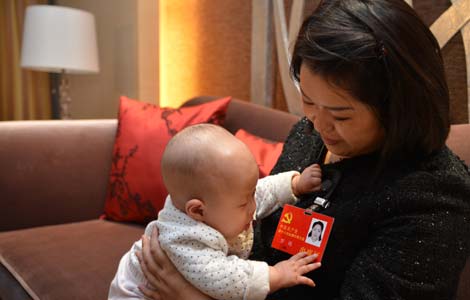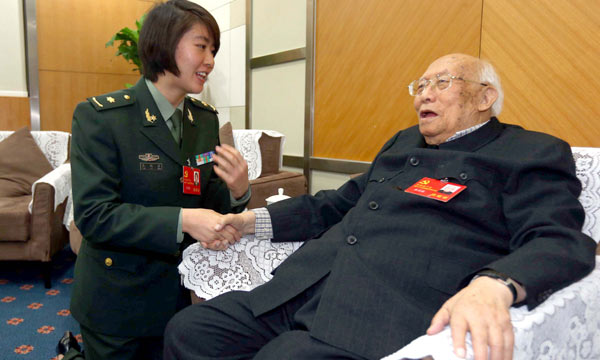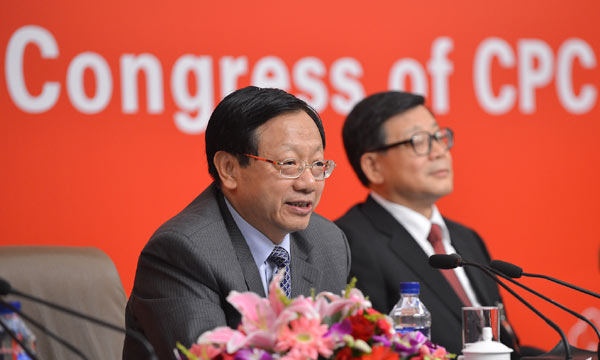China explores expansion of grassroots democracy
(Xinhua)
Updated: 2012-11-05 14:01
He was first chosen by his ten family members as their family representative. He then competed with another ten family representatives to become a unified deputy for the 11 families. Finally, he became one of the eight deputies of the No 7 Group and one of the 53 deputies of Duqiao village.
All the group's major issues are decided by the deputies at monthly meetings.
The village deputy system gives villagers more room to supervise the village heads and is crucial for the autonomy of villages, said Dang Guoying, a researcher with the Rural Economy Institute of the Chinese Academy of Social Science.
However, it was not smooth sailing when the system was first introduced in the village in 2006. Wu Liutun, the village Party chief, worried that his opinions would no longer matter, but he soon found the benefits of sharing power.
Wu spent 800 yuan ($126.9) on a water pump for the village last year, but some villagers accused him of taking a kickback. It was hard for him to justify himself. With the introduction of the village congress, villagers now make decisions themselves.
"In the past, you would be criticized if you made one error out of a hundred," said Yan Zhiqiang, Party chief of Baisha. "There was a lack of trust between the cadres and the masses."
"Democracy has made the supervision of cadres a reality and the villagers have their say in public affairs," Yan said.
The villagers' various requests, including compensation for demolition, building roads and land rentals, have been met with the successful operation of the village congress.
The "village deputy system" is the epitome of China's exploration of grassroots democracy.
Expansion of primary-level democracy was highlighted in the 17th National Congress of the CPC in 2007. A series of innovative measures have been taken to improve grassroots democracy, including the trial direct election of town-level Party chiefs in some Chinese cities.
Chinese President Hu Jintao, also general secretary of the CPC Central Committee, called on officials to develop a more wide-reaching people's democracy and pay more attention to exerting the important role of the rule of law in the administration of the country and society, at the opening session of a workshop for ministerial officials and provincial heads on July 23.
Analysts expect more measures to be taken to improve the grassroots democracy in China during the upcoming 18th National Congress of the CPC, which will convene on November 8.
The expansion of the primary-level democracy has laid a firm foundation and prepared talents for overall democracy in China, said Li Liangdong, a researcher with the Party School of the CPC Central Committee.
A plenary deputy conference was held among the No 7 Group of Duqiao village to discuss the feasibility of the retired professor's clinic in late August. After Wang promised not to enjoy any welfare from the village and wrote a letter confirming this, the deputies agreed that Wang could move back to the village and open her clinic.
Wang's dream of returning to her hometown has finally been realized.
Related Stories
CPC develops democracy over last decade 2012-11-05 10:53
China progresses in promoting well-being,democracy 2012-11-01 21:49
Official vows to promote greater Party democracy 2012-08-15 08:05
CPC elects younger,grassroot delegates to congress 2012-11-05 09:40
Reform must include grassroots innovation 2012-10-26 07:25
Video







